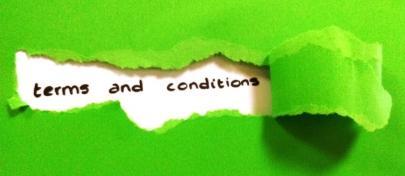A quick guide to staying within the law when creating online teaching materials
You may want to share a range of different electronic materials with your students when using the University’s online learning platforms such as Canvas. Where you use materials which have not been created by yourself or colleagues within the University, you will need to consider the copyright implications. You’ll find more in-depth under the main Copyright Matters page, but below there are some key dos and don’ts to ensure you stay on the right side of the law.
Books and book chapters
DO create a link to an original e-book by adding it to the relevant reading list in Leganto
DO add the details of any book chapter you require for your students to the relevant reading list in Leganto. The Library’s Digitisation Team will source and add scanned extracts to your reading list, under the Copyright Licensing Agency (CLA) Higher Education Licence. See the Digitisation Service webpage for more details.
Please:
DON’T scan hard copy book chapters and share them electronically with your students.
DON’T upload pdf (or other format) copies of e-books or e-book chapters to Canvas
Journals and Journal Articles
Do create a link to the original e-journal by adding it to the relevant reading list in Leganto.
Do add the details of any journal article you require for your students to the relevant reading list in Leganto. A copy of the article will be sourced and added to your reading list by the Library’s Digitisation Team, under the Copyright Licensing Agency (CLA) Higher Education Licence. See the Digitisation Service webpage for more details.
Please:
DON’T upload pdf (or other format) copies of journal articles you have downloaded via the library catalogue or found online – unless they have been published on an Open Access basis, or you have direct permission from the journal publisher
DON’T scan hard copy journal articles and share them with your students.
Websites
 If the material you wish to use is from a website, you must make sure that you read and follow the Terms and Conditions or Terms of Use for the website. It is often better to provide a link to the website’s home page in Canvas, rather than download material from the site.
If the material you wish to use is from a website, you must make sure that you read and follow the Terms and Conditions or Terms of Use for the website. It is often better to provide a link to the website’s home page in Canvas, rather than download material from the site.
Here are some points to bear in mind for including resources (including text, photos, videos, music etc) you find on the web in your course materials and lectures:
DO check whether material you want to share has been made available under a Creative Commons licence – if it has, then you can usually make and share copies for educational purposes so long as you credit the original author.
DO always ask permission of the copyright owner to copy and upload material if they have not explicitly granted permission or licenced it for re-use.
DO create links to web-based material which you want your students to use (but be aware that some webpages don’t permit ‘deep linking’ directly to specific articles/images /pages).
Please:
DON’T upload any material you’ve copied from the web to the University’s learning platforms unless you have the copyright owner’s permission.
DON’T assume because you cannot find the author’s contact details or do not get a response from an author, that you have permission to reuse the material
If you are not sure whether you can copy/use something – find an alternative.
Further help
If you have a specific query about copyright or finding appropriate information resources to include in your teaching materials, please ask your Liaison Librarian.


/prod01/wlvacuk/media/departments/digital-content-and-communications/images-2024/240328-Varsity-Line-Up-Resized.jpg)
/prod01/wlvacuk/media/departments/digital-content-and-communications/images-18-19/220325-Engineers_teach_thumbail.jpg)
/prod01/wlvacuk/media/departments/digital-content-and-communications/images-2024/240515-Spencer-Jones-Award-Resized.jpg)
/prod01/wlvacuk/media/departments/digital-content-and-communications/images-2024/240229-The-Link-Resized.jpg)
/prod01/wlvacuk/media/departments/digital-content-and-communications/images-2024/240516-Andy-Gibson-Resized.jpg)